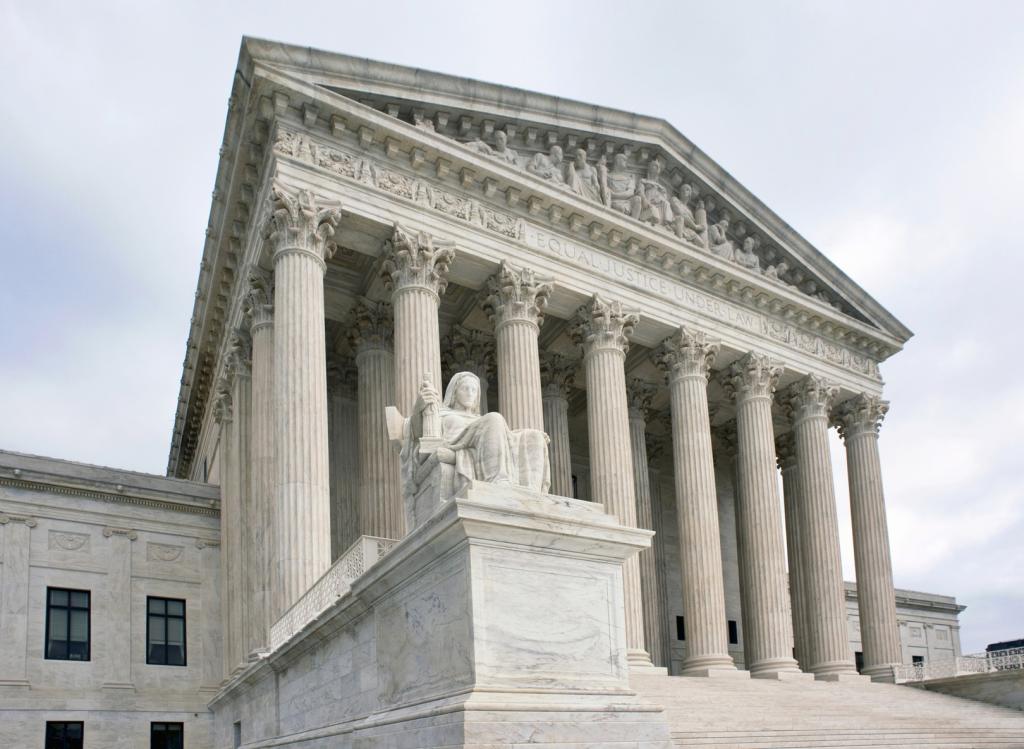July 16, 2019
Overturning Roe Could Threaten Privacy Rights in Unpredictable Ways
Director of the Drake Constitutional Law Center and James Madison Chair in Constitutional Law, Drake University Law School

This column originally appeared in USA Today.
Some experts believe that the Supreme Court will review a challenge to and overturn Roe v. Wade, eliminated a woman’s federally protected right to an abortion. Almost 50 years ago, the court rested abortion on an implied constitutional right to privacy. Moreover, the 9th Amendment in the Bill of Rights opens the door to the court finding an implied privacy right. That amendment says: “The enumeration in the Constitution of certain rights, shall not be construed to deny or disparage others retained by the people.”
Now, perhaps the court will not reverse Roe. But President Trump’s two conservative appointments to the court cannot be ignored. There has, however, only been limited examination of what would happen to some other rights if the court reversed Roe. Such a decision could dramatically endanger the right to privacy in surprising areas.
Privacy rights extend far and wide
The Supreme Court’s decision finding a right to privacy arose in a 1965 case involving the right of a married couple to use contraception called Griswold v. Connecticut. But the right to privacy has become responsible for court decisions supporting adult rights to sexual intimacy, to gay marriage, and to the rights of parents to make family decisions, such as whether their children are home-schooled or go to religious schools. The right to privacy also supports an adult’s right to decide their medical care, and an adult’s right to die, by rejecting medical care in certain circumstances. Further, the right to privacy can support artificial insemination. And transgender individuals have used privacy to argue that schools cannot ban them from certain bathrooms.
The concept of a right to privacy goes back to a Harvard Law Review article in 1890 when newspapers and photographers were becoming especially troublesome intruders. The article was authored by subsequent Supreme Court Justice Louis Brandeis and professor Samuel Warren. They were admittedly supporting a right to informational privacy, and protection from intrusion, but those ideas remain relevant in our age of surveillance and data acquisition. Privacy has a strong historical pedigree.
Now there are two main perspectives on how the court might overturn Roe. Some argue that the court could eventually negate the abortion right alone, but keep privacy alive in other areas. They argue that abortion is unique because the state has a special interest in protecting the fetus. This seems like a narrow ruling. Yet this is not so simple, as the court would inevitably have to undermine its prior decisions extending the privacy right beyond Griswold and Roe. Thus, one cannot presume that even this “narrow” reversal of Roe would guarantee the privacy right’s application to the areas mentioned earlier.
What if a right to privacy doesn't exist?
Then there are several justices who seem to believe that no privacy right can be implied in the Constitution. They are correct that privacy is not explicitly mentioned in the document, and that it is unlikely the framers of the Constitution’s 14th Amendment sought to protect abortion rights. This latter point is called an “originalist” argument, since it examines what the writers of that amendment were contemplating.
For example, Justice Clarence Thomas is an originalist who does not defer to prior case precedents such as Roe in his reasoning. These justices might therefore have the votes to overturn Roe by reasoning broadly that there is no privacy right at all. That would endanger each of the areas above where privacy plays a role. It might even allow legislatures to prohibit women who have been raped or subject to incest from obtaining an abortion.
Thus, those seeking to overturn abortion rights should be aware of the ramifications. Conservative pro-life advocates and originalists could lose other rights they may value in the process (such as family decision-making, home-schooling, and certain protections of the disabled). Moreover, experts generally agree that any decision reversing Roe will politically energize both the Democratic Party and many women to show up at the 2020 polls and vote for liberal pro-choice candidates.
Mark S. Kende is the James Madison Chair in Constitutional Law and director of the Drake Constitutional Law Center. He is also an ACS co-faculty advisor at Drake Law School.




